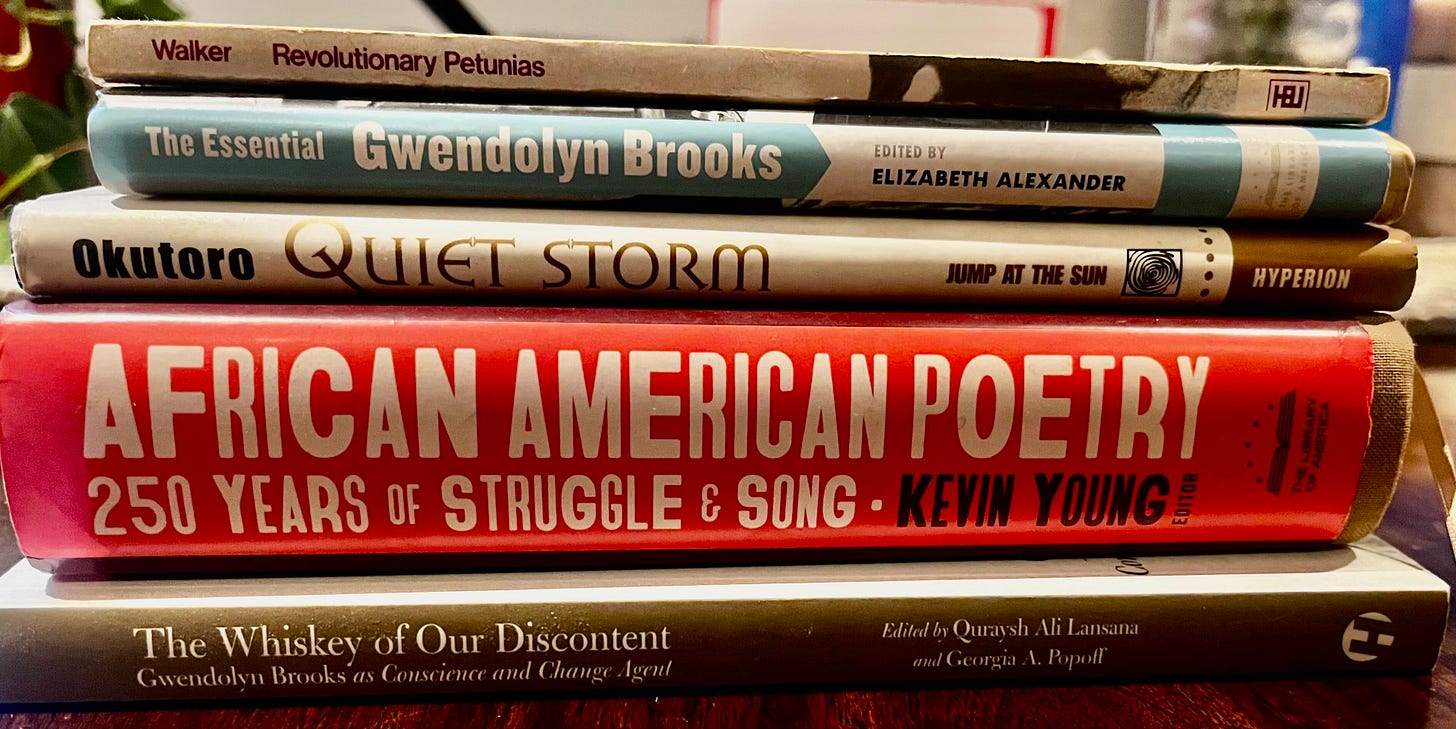In Praise of Black Poets During National Poetry Month
Or, Giving flowers to our beloved poets while it's still legal
What I think I know about courage on the page, I learned from Black poetry and Black poets.
April is National Poetry Month, and I’ve been thinking about this process of making myself be a certain kind of writer because some of the first writers I admired deeply were poets. But even though some of my earliest published work was poetry, and I aspire to keep a poetic rhythm in my language, I have never easily classified myself as a poet.
Aside from the marketing of work, I’m not sure it really matters. But for me, this resistance comes mostly out of respect for “real poets” or the poets that shaped what I believed was possible for a Black woman writer in America.
The 90s were a confusing time to practice poetry, or even to feel confident writing it, because the predominant forms of practice in the Bronx transmitted to the world at that time were extroverted forms like rap music and spoken word. I gravitated naturally to Alice Walker’s work, in the 1973 Revolutionary Petunias & Other Poems, and Nikki Giovanni, may she rest in peace. Ntozake Shange’s for colored girls who considered suicide when the rainbow is enuf – along with The Love Space Demands, which, honestly, I didn’t understand, but I sure did adore that title! – rocked my world so hard that I directed (with zero previous experience as a director of…anything) a production of it at my predominately white boarding school.
There is a specificity and precision in poetry that I love; a beautiful distillation of language and concepts that I find soothing. In times like these, when history and the artistic merit of Black thought and creation is under attack, I turn to the poets, whose work embodies resistance to me, creating a voice where others insist there should instead be silence, obedience, possibly both.
I wrote my first published poem, “Woman warrior” when I was 18, under my not-quite-pen name J. Victoria Sanders. It was published a couple of years later in a hard-to-find now anthology called Quiet Storm: Voices of Young Black Poets. But I never received a contributor’s copy because I was still technically homeless even though I was well into my junior year at Vassar when the book was published. My mother had been evicted from our Bronx apartment the year before, and I effectively didn’t have another stable address except for school.
It wasn’t until 16 years after the anthology was published that, when I visited a used bookstore in Washington, D.C.’s Adams Morgan neighborhood, that I found a copy of the anthology – a miracle to me, a moment among moments of self-rediscovery that I had been trying for in those early years after my parents died, and I was trying to remember the girl they raised me to be, the dreams they might have had, if things had been a little easier, particularly for my mom.
I’m planning to write more this month about how poetry and Black poets in particular, have taught me so much, have been essential to raising me up in a way, and fortifying me when I don’t have language or words of my own. I made this list in my Bookshop store of some of my favorites, and I may add more.
I’m curious, for you loving writers and readers out there: Do you like poetry? Who are your favorite poets? Do you have a favorite poet or poem? If you are so inclined, I’d love to hear if there are special poets or poems that carry special meaning to and for you.





I love that you found that anthology (or perhaps it found you!) those years later, Joshunda. Thank you for showing love to the poets 💜.
Clint Smith is a contemporary favorite of mine. Thanks for writing!